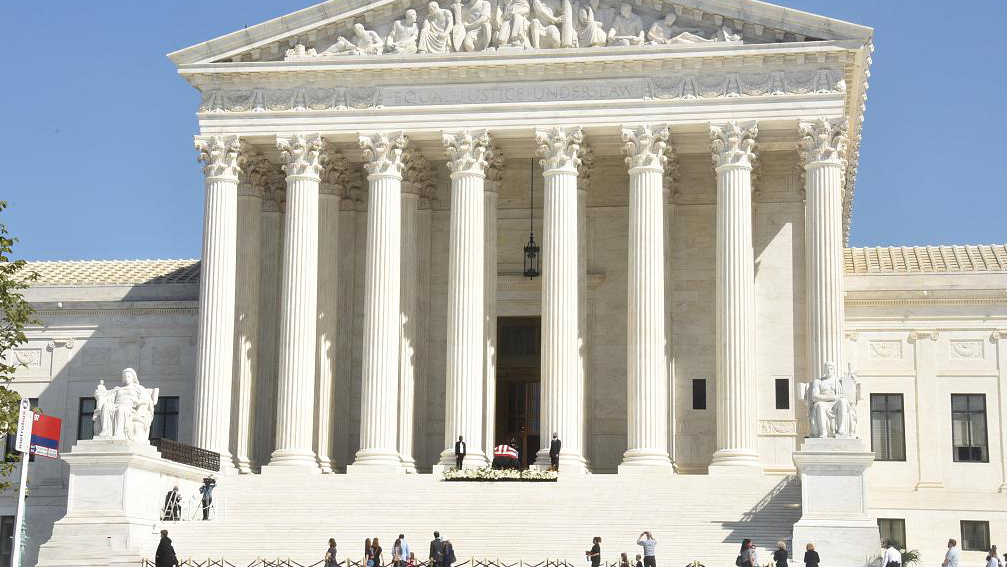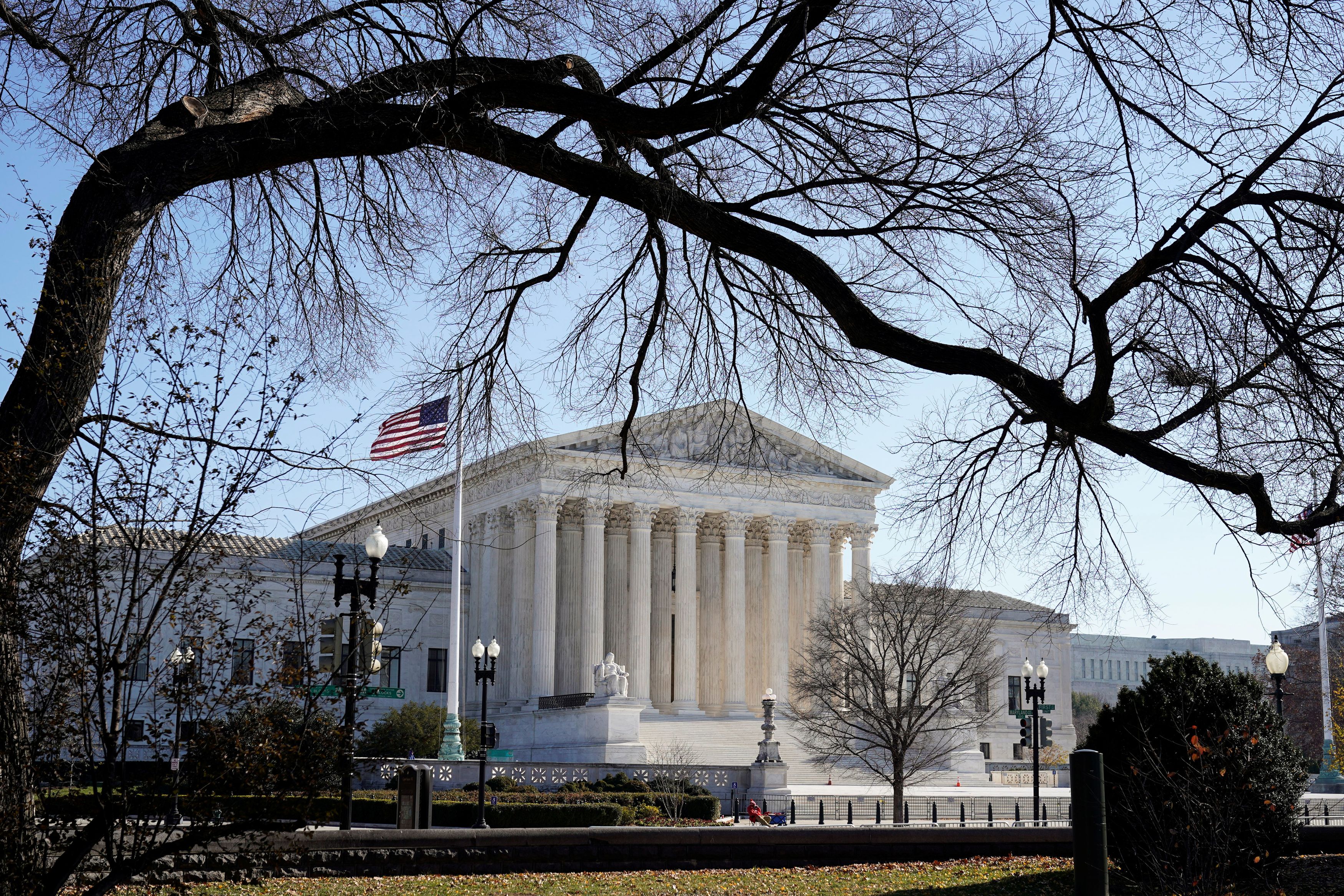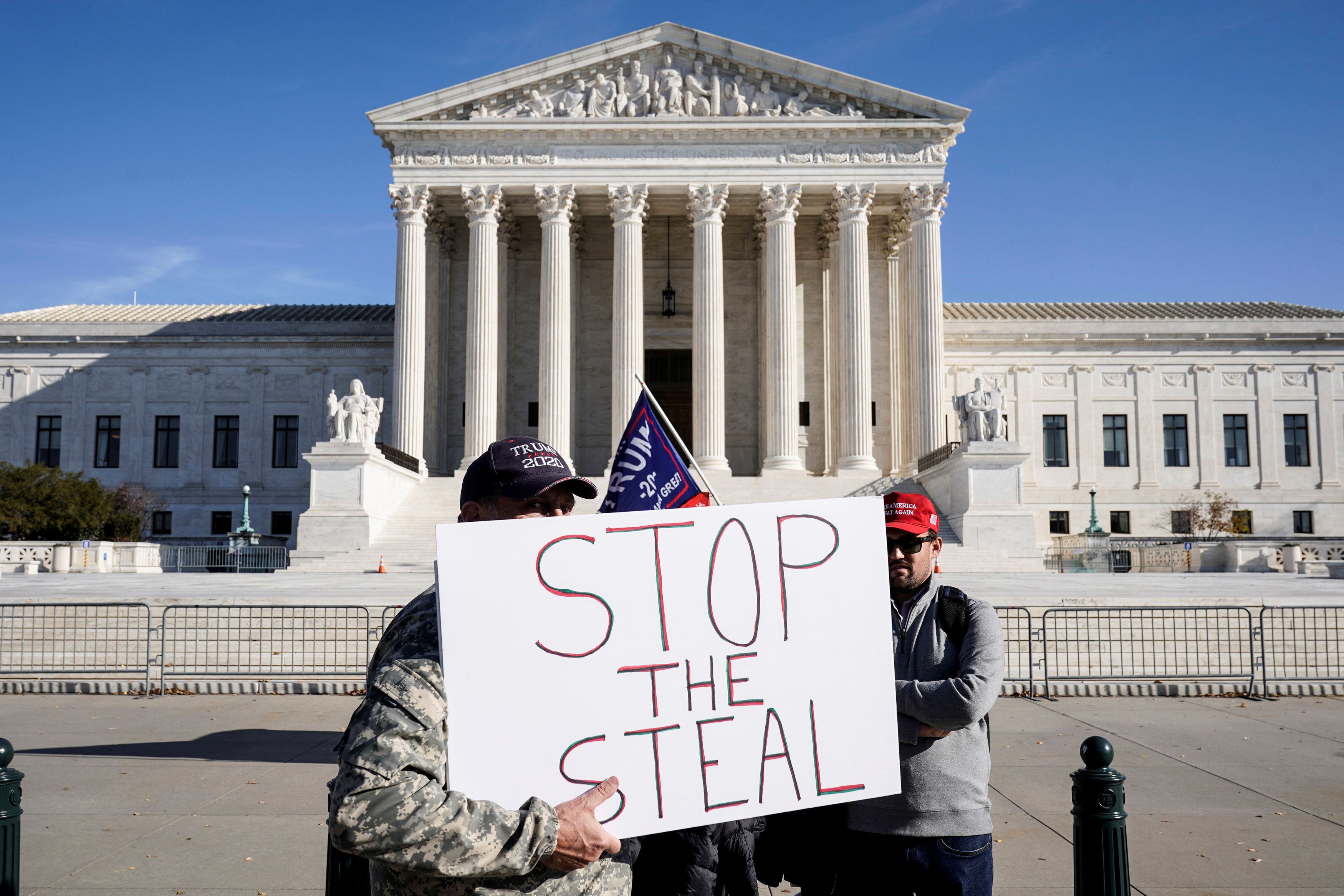00:35

The U.S. Supreme Court denied on Friday a lawsuit filed by Texas and backed by U.S. President Donald Trump seeking to overturn the 2020 election results in four battleground states, dealing Trump a crushing setback in his quest to undo his election loss to President-elect Joe Biden.
In a brief order, the justices rejected the bid by Texas to file the extraordinary challenge targeting Georgia, Michigan, Pennsylvania, and Wisconsin directly with the Supreme Court, as is allowed in some instances of litigation between states under a legal doctrine called "original jurisdiction."
No legal grounds
Trump's goal had long been for a case to reach the Supreme Court, where he had placed three new justices in his first term and where conservatives hold a 6-3 majority.
The lawsuit brought by Texas and supported by 17 other states and more than 100 Republican members of Congress gave him that opportunity.

The Supreme Court is seen as the court reviews a lawsuit filed by Texas seeking to undo President-elect Joe Biden's election victory in Washington, U.S., December 11, 2020. /Reuters
The Supreme Court is seen as the court reviews a lawsuit filed by Texas seeking to undo President-elect Joe Biden's election victory in Washington, U.S., December 11, 2020. /Reuters
In the run up to the November 3 election, Trump had pushed for the swift confirmation of Justice Amy Coney Barrett, with the publicly stated hope that she could be in a position to help rule on an election challenge.
But Barrett and the two other justices appointed by Trump – Neil Gorsuch and Brett Kavanaugh – signed onto the court's order derailing the Texas suit without comment.
The order said Texas did not have legal standing to bring the claim.
"Texas has not demonstrated a judicially cognizable interest in the manner in which another state conducts its elections," said the court's order.
Two of the court's conservatives, Justice Samuel Alito and Justice Clarence Thomas, said they would have allowed Texas to sue but would not have blocked the four states from finalizing their election results.
The Texas case was filed on Tuesday by Ken Paxton, the Republican attorney general of the state and a Trump ally.
The Republican president on Wednesday filed a motion to intervene and became a plaintiff.
In a filing with the court on Thursday, the four states asked the justices to reject the lawsuit, which they said had no factual or legal grounds.
A Biden spokesman said it was "no surprise" the high court rejected "baseless attempts" to deny Trump lost the election.

Supporters of U.S. President Donald Trump stand in front of the Supreme Court as the court reviews a lawsuit filed by Texas seeking to undo President-elect Joe Biden's election victory in Washington, U.S., December 11, 2020. /Reuters
Supporters of U.S. President Donald Trump stand in front of the Supreme Court as the court reviews a lawsuit filed by Texas seeking to undo President-elect Joe Biden's election victory in Washington, U.S., December 11, 2020. /Reuters
'Stop the steal'
Minutes before the ruling came down, Trump released a new TV ad claiming that the election was stolen, calling it an "outrage" and telling supporters to contact their legislators.
Earlier Friday, he urged the Supreme Court to show "great Wisdom and Courage" in a tweet that claimed that the "American People" needed the Texas lawsuit to win. He also retweeted a conspiracy theory about voter fraud declaring that "Joe Biden will not set foot in that White House."
The chairman of the Texas Republican Party suggested the formation of a "Union of states that will abide by the constitution" on Friday after hearing the ruling.
Texas GOP Chairman Allen West said the Supreme Court's order had established "a precedent that says states can violate the U.S. Constitution and not be held accountable."
Trump's campaign and his allies have already lost in numerous lawsuits in state and federal courts challenging the election results. Trump has falsely claimed he won the November 3 election and has made baseless allegations of widespread voter fraud and a system "rigged" against him.
State election officials said they found no evidence of such fraud, and lawyers for Trump and his allies also failed to present evidence in court of the type of fraud he has alleged.
All four states targeted in this Texas lawsuit voted for Trump in the 2016 election but turned blue in favor of Biden in November.
(With input from Reuters, AFP)

